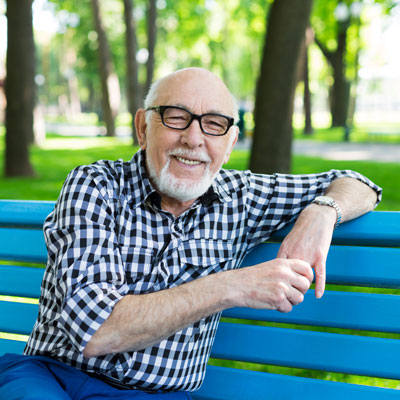 Actor Keanu Reeves, who just turned 55 on Labour Day and barely looks it, has said he confronts aging with “a wonder and a terror.”
Actor Keanu Reeves, who just turned 55 on Labour Day and barely looks it, has said he confronts aging with “a wonder and a terror.”
The trick of course, is to make sure we have more of the former and less of the latter.
A few years back, the Heart and Stroke Foundation ran that commercial about your last 10 years: “Will you grow old with vitality, or get old with disease? It’s time to decide. The average Canadian will spend their last 10 years in sickness.”
We live in a time when a blood test can purportedly gauge our risk of death within the next 10 years. But what’s more important – when you will die, or how well you will have lived?
Plan to live long, because you just might
Many of us have known people who, due to their family history, their outlook on life, or the emotional toll of an illness or disease, have resigned themselves to death. Their mind is already there, when in fact their body may not be. It’s very disheartening thing to see and hear.
None of us can really predict our end. All we can do is take the best care of our bodies possible to ensure our last 10 years are vital and strong.
If given the chance to go back in time and give a piece of advice to your younger self, most of us would likely counsel a change of habit or behaviour because we are now living with the consequences in the present. But it is rarely too late to take action and chart a new course now.
Access to quality care does make a difference
But it is worth the effort. We can’t rely on modern science or pharmaceuticals alone to help us age well. Forbes published an eye-opening article recently about how, despite the huge growth industry around coming up with ways to make us live longer, life expectancy in the developing world is beginning to falter.
To quote:
The same trend is emerging in the U.K. In Canada, our life expectancy at birth has stopped rising for the first time in over four decades, which Statistics Canada has attributed to the ongoing opioid crisis.
But you have to be an informed consumer
Yes, opioids – that addictive family of pain medications which too many Canadians use and misuse to treat their symptoms instead of getting to the root cause of their pain. (As we always say, get to the source of your back pain, don’t just mask the symptoms with pills.)
Life expectancies in the developed world are stalling despite the fact that the global industry to create new therapies and drugs to extend our lives (and counter all the bad lifestyle habits many of us have) will reach US$17 trillion in 2019 and $27 trillion in 2026, representing about 20 per cent of global economic output.
It’s easy to put the blame for our issues with age and health on big companies that push drugs and fast food, or that market sugar to kids, or on the absence in some countries of a universal health care system.
Because the choices you make matter most of all
But ultimately, the responsibility lies with each of us, to take action and be proactive with our health, despite what big companies and governments may, or may not, be doing.
Regardless of what we could or should have done in our youth, age is no excuse to not start doing a better job of taking care of yourself now. In fact, today is the best day to make the changes that will ensure your last 10 years are as vital and fulfilling as possible.
If you don’t think it’s worth the effort to take that action for yourself, then do it for those you care about and who care about you.
